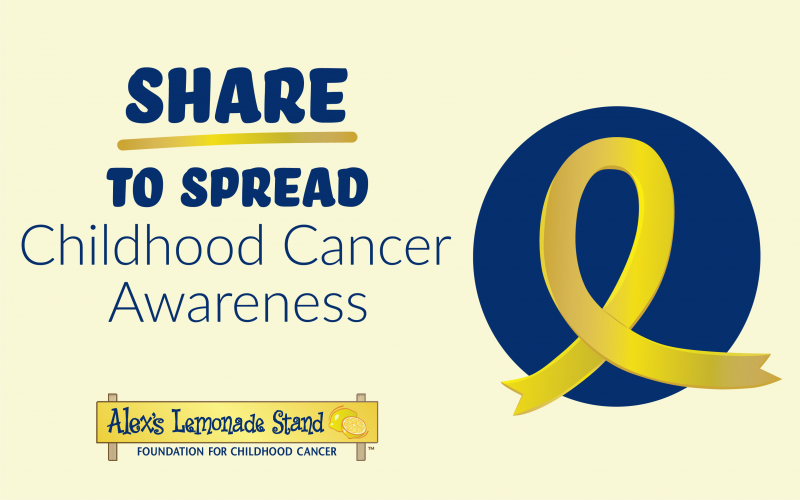
By: Trish Adkins
For kids facing a childhood cancer diagnosis, 2020 has brought a double dose of uncertainty. Children still need treatment. Families need to manage that treatment alongside both the disruptions of the pandemic and regular life — work, mortgages and school.
In the early months of the COVID-19 pandemic, Alex’s Lemonade Stand Foundation (ALSF) surveyed families through the My Childhood Cancer Survey Series. My Childhood Cancer collects information from families through a series of anonymous surveys that ask questions about the impact of childhood cancer in all aspects of their lives.
Here’s what you need to know about childhood cancer in 2020:
1. Kids still get cancer.
The number of kids with cancer remains unchanged, despite the pandemic. Nearly 16,000 children in the United States will be diagnosed by the end of 2020*
2. Kids still need treatment.
Childhood cancer treatment cannot wait. Pediatric oncology clinics had to quickly pivot and increase visitor and clinic protocols to keep vulnerable children safe from infection. Twenty-two percent of families had their child’s appointment converted to a telehealth appointment.** For patients receiving treatments at a hospital far away from home, their doctors worked to coordinate local monitoring and delivery of critical drugs.
3. When COVID-19 forced all but essential employees to work from home, childhood cancer researchers were faced with the same shutdown.
Dr. Michelle Monje, an ALSF-funded researcher who studies high-grade gliomas, had less than 12 hours to shut down her lab when her county in California put shelter-in-place orders in effect on March 16. At home, her team was forced to pivot from lab research, using the time for data analysis, paper writing, and to push two new clinical trials forward. Dr. Monje’s lab is open again, but with restrictions and social distancing guidelines in place. For young investigators, just at the start of their careers, the COVID-19 crisis puts an enormous financial burden on their labs.
4. The general population is doing what cancer families have been doing since diagnosis.
From self-isolation, to homeschooling, to increased handwashing and cleaning, childhood cancer families were practicing social distancing before the pandemic made it a global requirement.
5. Childhood cancer impacts everyone in the household.
Even as the world opens up, childhood cancer families have to remain vigilant and locked down. Cancer and COVID-19 impact decisions and logistics for returning to work and school. More than 25 percent of households experiencing a childhood cancer diagnosis during 2020 experienced lost wages as a result of the COVID-19 pandemic.**
6. Families affected by childhood cancer during the pandemic are struggling financially.
As unemployment rates climbed overall, childhood cancer families were severely impacted. Families were faced with less income and more expenses due to treatment. From appointment co-pays to gas, accommodation and meal costs associated with traveling even a short distance for treatments, childhood cancer is costly. Eleven percent of families affected by childhood cancer during the pandemic are struggling to pay for basic needs such as housing, groceries and utilities. **
The COVID-19 Emergency Fund
In response to these immediate needs, ALSF has created an emergency fund to help families during this critical time. To properly address the issues families are facing, this fund provides:
- Extended hotel stays so families can remain close to treatment
- Grocery assistance for families
- Support for families traveling to their home hospital for standard treatment
Families need these solutions now. You can help ALSF continue to provide these critical services. Your donation can mean another hotel stay, another week’s worth of groceries, and another day of peace of mind over finances for these families.
Together, we can help families navigate this uncertain time. Give today and make a meaningful difference for all children fighting this disease.
Donate to Help Kids with Cancer!
*Source: National Cancer Institute
**Source: My Childhood Cancer Survey Series

